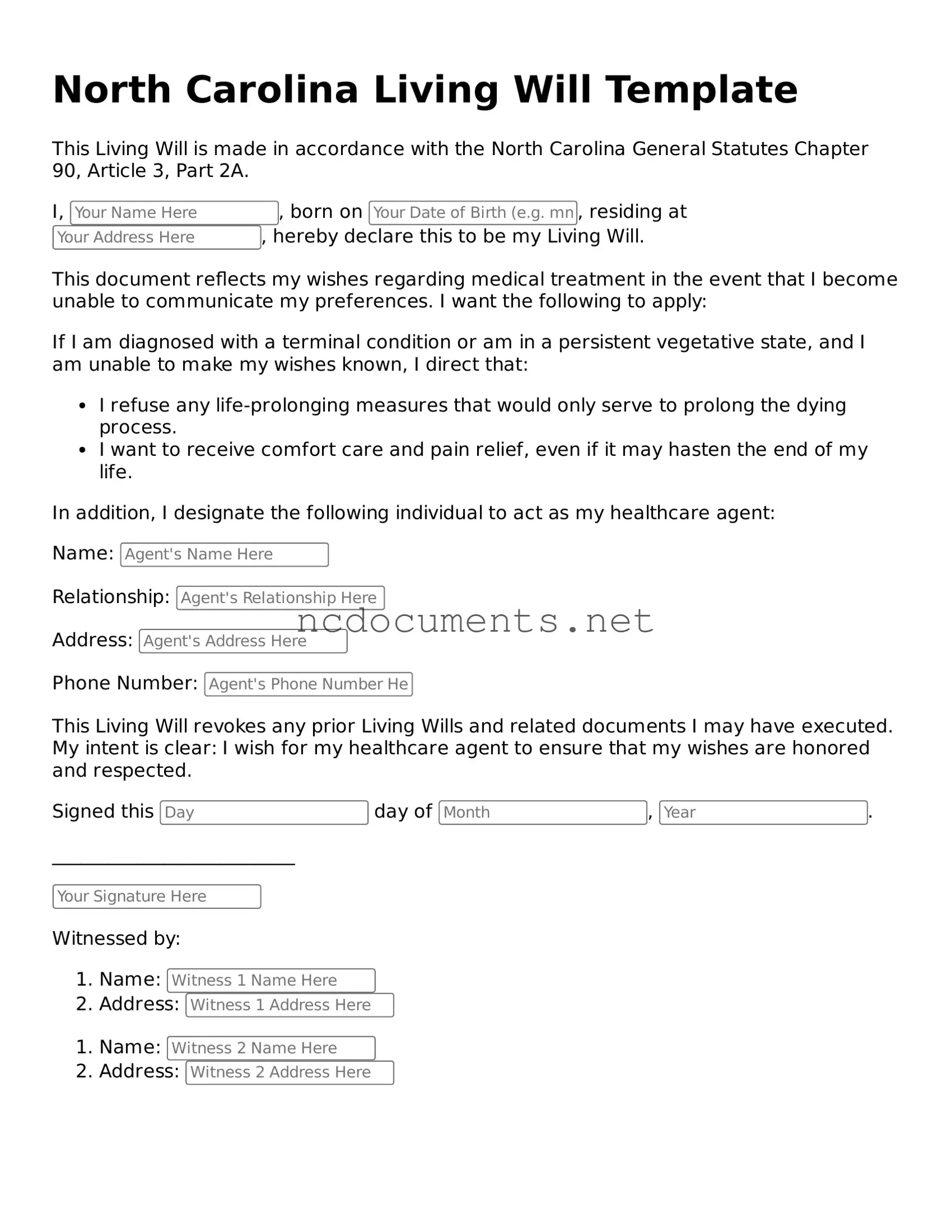What is a North Carolina Living Will?
A North Carolina Living Will is a legal document that allows you to express your wishes regarding medical treatment in case you become unable to communicate your preferences. This includes decisions about life-sustaining treatments if you are terminally ill or in a persistent vegetative state.
Who should have a Living Will?
Anyone over the age of 18 should consider having a Living Will. It is especially important for individuals with serious health conditions, those undergoing major surgeries, or anyone who wants to ensure their medical wishes are respected in case of an emergency.
How do I create a Living Will in North Carolina?
To create a Living Will in North Carolina, follow these steps:
-
Download or obtain a Living Will form.
-
Fill out the form by clearly stating your wishes regarding medical treatment.
-
Sign the document in the presence of two witnesses or a notary public.
-
Keep the original document in a safe place and share copies with your healthcare provider and family members.
What should I include in my Living Will?
In your Living Will, you should include:
-
Your preferences for life-sustaining treatments, such as resuscitation, mechanical ventilation, and feeding tubes.
-
Any specific medical conditions under which you do or do not want treatment.
-
Your designation of a healthcare agent, if desired, to make decisions on your behalf.
Can I change or revoke my Living Will?
Yes, you can change or revoke your Living Will at any time. To do this, simply create a new document or write a statement indicating that you are revoking the previous Living Will. Make sure to inform your healthcare provider and family members about the changes.
What happens if I do not have a Living Will?
If you do not have a Living Will, your family members or healthcare providers may have to make decisions about your medical care without knowing your preferences. This can lead to confusion and potential disagreements among loved ones during a difficult time.
Is a Living Will the same as a Power of Attorney?
No, a Living Will and a Power of Attorney are different documents. A Living Will focuses on your medical treatment preferences, while a Power of Attorney designates someone to make decisions on your behalf regarding financial or legal matters. You can have both documents in place for comprehensive planning.
Do I need a lawyer to create a Living Will?
No, you do not need a lawyer to create a Living Will in North Carolina. However, consulting with a legal professional can be helpful, especially if you have specific concerns or complex wishes regarding your medical treatment.
Where should I keep my Living Will?
Keep your Living Will in a safe but accessible place. Inform your family members and healthcare providers about its location. Consider giving copies to trusted individuals who may need to reference it in the future.
How often should I review my Living Will?
It is a good idea to review your Living Will periodically, especially after major life changes such as marriage, divorce, or a significant health diagnosis. Regular reviews ensure that your document reflects your current wishes and circumstances.

